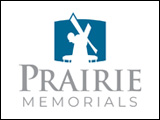Museums may be enduring institutions that showcase artefacts and history, but they are not static. In Roman times the word museum referred to a place devoted to philosophy and scholarship. Museum literally means ‘place of musing’. After the Roman period museums became galleries of private collections only open to the elite and their friends. The first organized body to receive a private collection, erect a building to house it, and make it publicly available was the University of Oxford; the resulting Ashmolean Museum opened in 1683 (Encyclopedia Britannica).
By the early 1800s public access to formerly private collections had become common. What followed for the next 100 years was the worldwide founding of museums intended for the public. In the 20th century, museums broadened their roles as educational facilities, sources of leisure activity, and information centres.
Today museums now have varying aims, ranging from serving researchers and specialists to serving the general public. In the last 50 years the goal of serving researchers has now shifted mostly to serving the public.
The development of museums is never finished. In the last ten years another museum transformation has begun. Museums are seeing that they should be engaged and doing advocacy within and for their communities. For example, more and more museums are bringing historical precedents and other relevant information to current issues with their exhibits. In 2022 Mennonite Heritage Village’s (MHV) exhibit ‘Leaving Canada’ delved into how Mennonites dealt with increased government influence over their school system a hundred years ago. The role of the parent, the school, and the government are still an issue today. Having a historical perspective provides space for constructive discourse in our communities today. Looking at examples from history can reduce polarization and the personal anger some may have when discussing a current hot topic.
We can be grateful for this development of museums over the centuries, including this new transformation of museum activism and community engagement. Museums are no longer exclusive places for the elite but are open to all. They are subsidized non-profits that people of all ages can benefit from them. At MHV there are several events and special days that are free and accessible to those that cannot even afford our daily admission rates. During this time of increasing polarization, growing engagement with the community is so needed. Please support the continued development of your local museum today!



